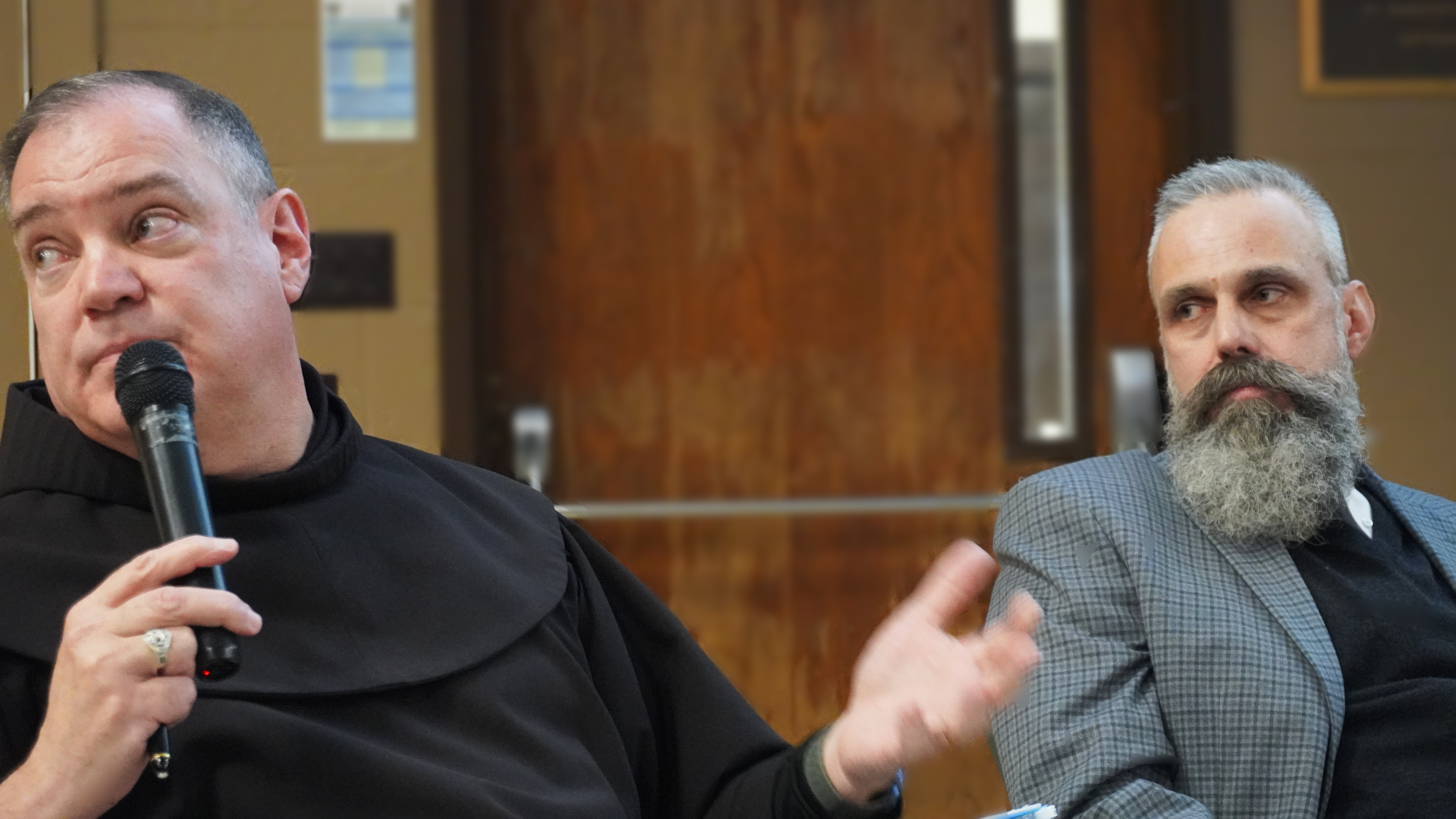Trump signing a bill
Photo: Wikimedia Commons
BY DAVID SCIBILIA, MANAGING EDITOR
Despite increased pressure from the Department of Education and the Trump administration, St. Bonaventure University President Jeff Gigerich said the university will continue its diversity, equity and inclusion programs until specifically told they violate the law.
On Feb. 14, the U.S. Department of Education Office for Civil Rights sent what has been dubbed the “Dear Colleague” letter to presidents of colleges and universities across the nation, instructing them to eliminate any DEI programs. If an institution decides to keep DEI practices, it may lose its federal funding, according to the letter.
“DEI programs, for example, frequently preference certain racial groups and teach students that certain racial groups bear unique moral burdens that others do not,” the letter reads. “The Department will no longer tolerate the overt and covert racial discrimination that has become widespread in this Nation’s educational institutions. The law is clear: treating students differently on the basis of race to achieve nebulous goals such as diversity, racial balancing, social justice or equity is illegal under controlling Supreme Court precedent.”
The letter, which references Students for Fair Admissions v. Harvard (2023) — the decision that prohibited the use of racial preferences in college admissions — extends this precedent to other areas of college life, such as scholarships and administrative support.
The letter gave institutions two weeks to comply. But last Friday, Maryland U.S. District Judge Adam Abelson temporarily halted the order from going into action due to it possibly being “unconstitutionally vague.”
In response to this, White House Deputy Chief of Staff Stephen Miller wrote in a post on X, “A federal judge just nullified the Civil Rights Act and the 14th Amendment, saying the government MUST use DEI to illegally punish Americans based solely on their race and skin color.”
While the constitutionality of this letter is battled out in the courts, Gingerich said it changes nothing for the university’s mission.
“We can’t just move away from the things that we value, which are community and belonging,” Gingerich said. “They have always been a part of our curriculum.”
St. Bonaventure receives just over $28.1 million in federal funding. Just under $25 million of this is for federal direct student loans; just over $2.7 million is for the federal Pell grant program, and the remaining $438,000 is split between federal work-study, educational opportunity grants and teacher education assistance grants, according to university documents.
“Losing federal funding would have a huge impact on the university,” said Gingerich. “We’re going to have to be very careful because there are some students who just couldn’t afford to come here without these funds. [Federal grants] are really important for research we do and our student support programs.”
Despite the letter’s ambiguity, Gingerich said he does not believe St. Bonaventure is breaking any laws.
“I think what the letter is saying is that DEI programs reinforce or build up racial stereotypes and actually build up more racial segregation on campus,” Gingerich said. “As long as we continue to operate within the Franciscan mission that we have here, it’s really the opposite. We really try to provide a sense of belonging for everybody. That’s what we thrive on. It would actually hurt us as an institution to do any work that actually segregates our students or our faculty or staff by race.”
Rep. Nick Langworthy, whose district includes St. Bonaventure, said federal dollars should not go to DEI initiatives.
“I think that we would like to see DEI programs limited everywhere because we want to live in a merit-based society,” Langworthy said. “Where federal dollars are attached, I believe that they [the federal government] has the purview mandate that DEI programs don’t govern any of those federal dollars.”
Gingerich said he hopes the university’s deep ties and history of positive cooperation with Langworthy can help to show that DEI programs are not negative.
“Because we have a good relationship with Nick Langworthy, I think that it’s incumbent upon us to kind of help him understand what we’re doing in those things that we call DEI programs,” Gingerich said. “He’s helped the university, so I think continuing to have the conversation with particularly our local officials about what we’re doing is important.”
The university is, however, reviewing the language it uses when describing DEI.
“We’re definitely going to keep the work going of DEI,” Gingerich said. “Depending on how the court decisions go and how we’re advised, we may need to change some of the language around DEI.”
Gingerich noted that many actions the university has taken that received broad support could be considered a part of DEI depending on whether the “Dear Colleague” letter is deemed constitutional.
“We’ve made tremendous strides in the work we’ve done with the Seneca Nation,” Gingerich said.
“We had the land acknowledgment, and we’re working with the Nation in talking about programs on campus and ways that we can further that friendship.”
DEI programs provide support — they do not divide the university, Gingerich said.
“I think the perception is that providing support for some students is going to disadvantage other students,” Gingerich said. “I feel very confident that we’re not doing anything that’s going to disadvantage other students, just because we’re increasing our support for our underrepresented students.”
scibild22@bonaventure.edu








